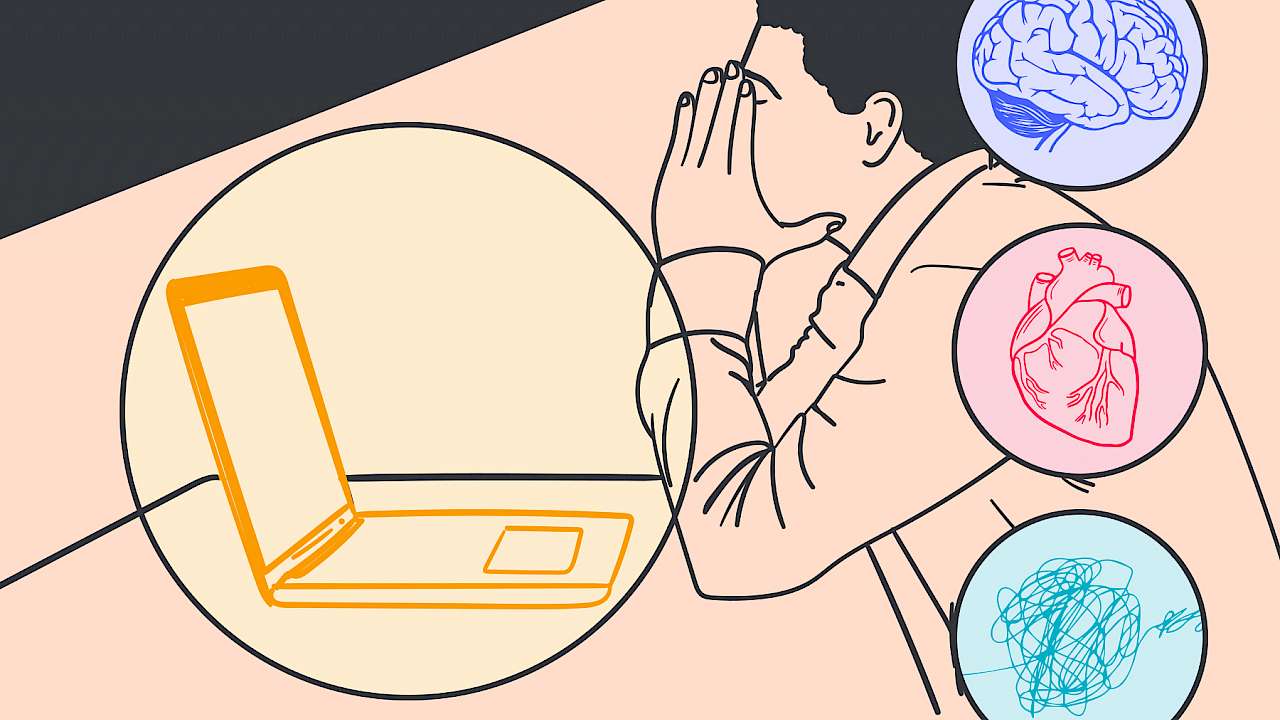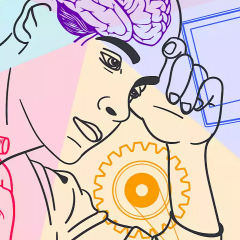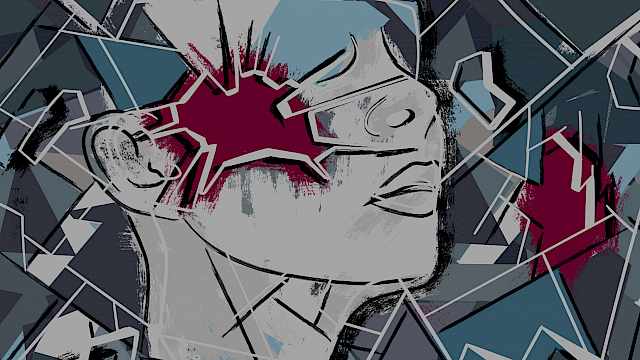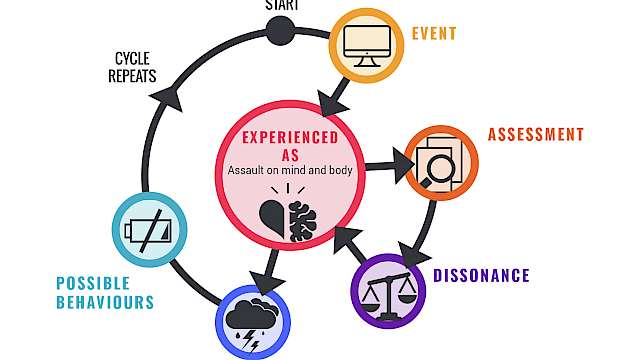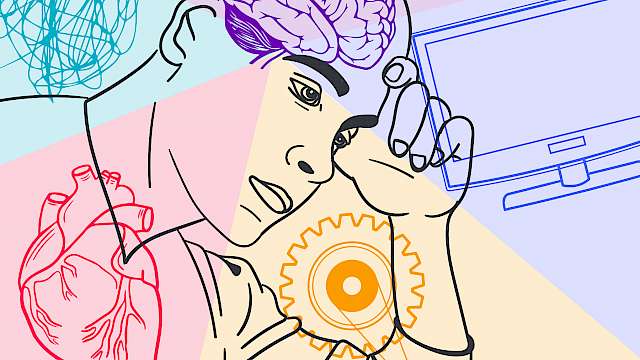Throughout their careers, police officers are exposed to an estimated 900 traumatic events (McQuerrey Tuttle et al., 2019) which, coupled with organisational stressors, contribute to mental ill-health and psychological trauma (McCreary et al., 2017).
Repeated exposure to work-related traumatic incidents impedes the ability of many police officers to cope (Bartol & Bartol, 2004), with the concurrent risk of developing mental ill-health (McCormak & Riley, 2016).
According to the College of Policing (2018), continual exposure to viewing thousands of images of child abuse creates an environment in which burnout, compassion fatigue, and secondary trauma become more likely.
This guide presents some of the key findings from a research project exploring trauma and moral injury in six ICAT (Internet Child Abuse Team) investigators. It is likely to be of interest to practitioners who investigate online child exploitation as well as other professionals who support them. It may also be relevant to those who encounter traumatising imagery in alternative settings.
Role and environment
Specific aspects of the police investigator’s role may play contributory factors in causing mental ill-health and distress. For example:
- Being unable to protect the young victims of sexual exploitation
“Often we’re dealing with images, and those children are unknown to us, and we’ll never be able to identify them, or it’s unlikely that we will.” - The sheer numbers of those involved
- The intensity of the work
“We have six weeks in which to review the data, and that’s not only doing the grading of the images, but it’s reviewing the chat logs, the web history, all the technical data that’s been extracted as well.” - The sense of personal responsibility that investigators feel to make sure no procedural errors occur
- Being unable to isolate their specific contributions to the outcome of a case.
- Cultural and organisational attitudes may inhibit disclosure of mental health difficulties.
The uptake of existing professional services among those interviewed for this research was low, suggesting that a more targeted response for online investigators is required.
It is also the case that individuals do not arrive in this role as ‘blank slates’ and, like the rest of the general population, may have had a series of traumatic experiences throughout their life that potentially increase their vulnerability to psychological distress.
Personal life
The role can have a considerable influence on the identity of investigators and their sense of self.
Detaching their professional identity (role as an online child exploitation investigator) from their home identity (role as a partner, parent) can be particularly problematic – this can be even more acute for those who have an undercover role and interact with perpetrators.
When engaging socially, investigators reported a sense of always being on alert:
“If you are looking at every new male that […] you meet in a social environment and you’re starting to assess them on a professional level, that’s exhausting, you’re never switching off.”
Some individuals believed they had become more cynical in their attitudes towards other people, fearing the impact of this on their view of humanity.
Such skewed perspectives were observed as changes in identity:
“I can feel it making a difference on my … view of the world and I can feel it making a ball in my stomach … And my wife can see it and I know that eventually… I’m going to either drop everything and walk out … or I’m just going to collapse and … be like … no more.”
Understandably, the role can have a considerable impact on being a parent and family member, with exposure to the horrors of child abuse pushing parents towards protective practices to safeguard their offspring from exploitative situations.
Managing stress
Instead of, or as well as, professional psychological support, familial support was considered a crucial yet unrecognised means of help for online investigators and a substantial buffer for psychological distress.
Likewise, peer support emerged as fundamental to the psychological wellbeing of officers; their colleagues perhaps being alone in understanding the full implications of their role:
“I’ve been with my … my [partner] for 16 years and [they are] a … a tremendously supportive part of my life, [they are] probably my … my principle support mechanism.”
The benefits of exercise were highlighted – some using it as a buffer to separate work and home life, others using the physical activity as a stress release:
“When I’m doing a workout, [I] kind of refocus myself, get my own identity back, before I go home.”
“… to relieve myself from […] work burdens […] I go out hillwalking and cycling all the time, just because I enjoy it, but I do find that the isolation of those pastimes is very, erm, very therapeutic.”
Officers also reported using alcohol to suppress psychological distress.
In the workplace, police officers used dark ‘gallows’ humour as a way to cope.
Some also try to minimise and detach from what they are viewing and hearing:
“So it’s just little kids, fine, whatever, err, I just tend to say it’s little kids, whatever, not … there’s nothing … to me, I just forget about it, it’s not sexual, it’s just little kids, fine, whatever.”
Cognitive avoidance was used as a deliberate strategy to avoid distressing thoughts; however, these would present as intrusive thoughts and images reflective of the content observed at work.
There was also evidence of dissociation or detachment, which is a natural consequence of trauma and an attempt to cope with overwhelming emotions and stimuli.
Some individuals described the consequences of chronic stress when they had rest days, becoming physically ill.
For some in this study, it was not a matter of if but when they would reach breaking point.
Five out of six of those interviewed saw their role as requiring a time limit due to the stress that accompanied it:
“It’s something … I can do for the time being and then I’ll have to … I’ll have to change jobs; it will come to a point where I’ll have another one of these and I think I’ll be incapacitated again.”
Conclusions
The research highlights the risk to ICAT investigators of developing moral injury and the potential for recurrent and complex psychological conditions such as PTSD, complex PTSD, and complex trauma. The research also outlines the need for more nuanced and sophisticated practice development where education and training should serve to raise awareness of these risks and ensure effective support mechanisms are in place.
Copyright Information
As part of CREST’s commitment to open access research, this text is available under a Creative Commons BY-NC-SA 4.0 licence. Please refer to our Copyright page for full details.
IMAGE CREDITS: Copyright ©2024 R. Stevens / CREST (CC BY-SA 4.0)
